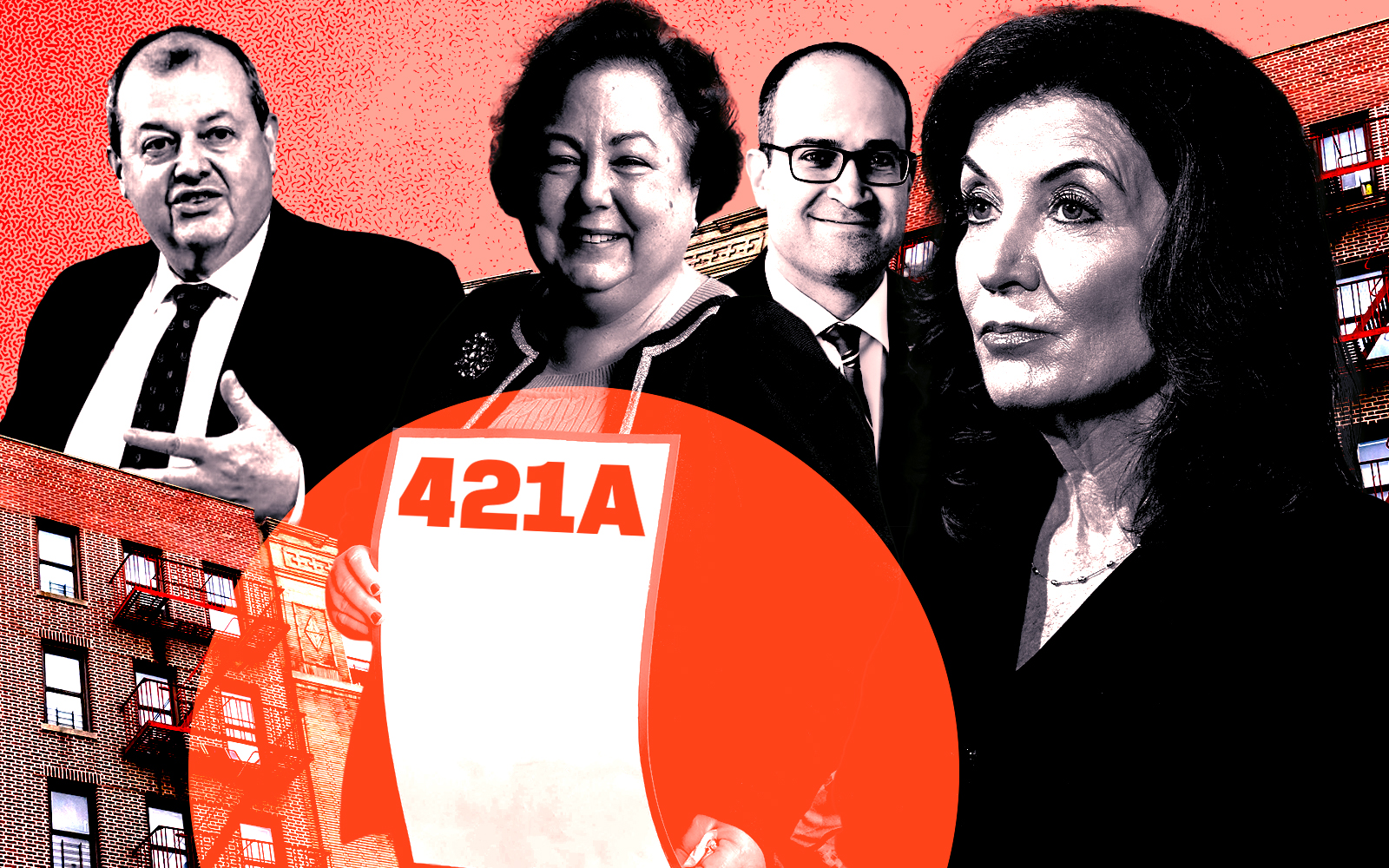
MAG Partners hit an unexpected wall when it filed plans to demolish 300 East 50th Street, where it plans a 194-unit apartment building.
The developer discovered that the vacant, 12-unit building at the site was on the city’s Certificate of No Harassment list, which meant it could not immediately obtain demolition permits.
Buildings are placed on the list if they have a history of violations for tenant harassment or are “severely distressed.” For the Department of Buildings to approve demolition or renovation work, an owner must first prove to have not harassed tenants.
In MAG’s case, any delay was a potential death sentence because the developer is racing to complete its project in time to qualify for the 35-year 421a tax break. The legal deadline is June 2026, but to be sure MAG beats the deadline, the project’s lenders demanded it be finished a year prior to it.
“If the demolition and construction cannot commence by April 2023, the owner will be forced to abandon its multifamily program,” Joseph Goldsmith, an attorney for the developer, wrote to the Department of Housing Preservation and Development on March 6.
He emphasized that the city would miss out on 200 apartments, 60 of them affordable, “at a time when Mayor Eric Adams is advocating for his ‘Get Stuff Built’ initiative to address New York City’s affordable housing crisis.”
On March 20, Goldsmith and Julie Greenberg, of the lobbying firm Kasirer, got the building off the hook, limiting the delay to three weeks. The city agreed that 300 East 50th Street did not need a no-harassment certificate.
But according to Goldsmith, the snafu underscores problems with the program and the danger to developers in a rush to qualify for 421a.
“They are going to find out at the last minute [that they need a certificate], and they are going to have a heart attack,” he said. “Any kind of delay is going to be fatal to a development where they have yet to pull their permits.”
City Comptroller Brad Lander, a former City Council member who championed the anti-harassment measure, said in an interview Thursday that the law is “not having a significant dampening effect on renovations.” MAG’s experience, Lander said, shows that owners have ample remedies at their disposal if they believe a site should not be on the list, which he said is relatively small (more than 1,000 properties) and readily available.
The comptroller said he is open to discussions about tweaking the scoring to reflect changes in the types of tenant harassment seen in the city, but that attacking the law itself demonstrates “an infinite tolerance for harassment.”
Gov. Kathy Hochul has proposed extending the 421a construction deadline by four years, but state legislators — who let the tax break expire last June — have resisted the idea.
Under city law, owners of single-room occupancy buildings and those in special-purpose zoning districts must certify that they have not harassed their tenants to receive construction permits. Owners apply for a certificate of no harassment, and then the city investigates to determine if the owners are telling the truth.
In 2018, as part of a pilot program, the City Council expanded the requirement to distressed buildings across 11 city districts. Lawmakers also applied it to properties where a court or the state’s housing regulator had ruled that harassment occurred within the past five years and to buildings that spent more than four months in a program for properties with extensive maintenance code violations.
The City Council voted in 2021 to extend the pilot through September 2026 and make it citywide. Buildings denied the certificate must either wait for a hearing or set aside 25 percent of their apartments for low-income residents.
“The city’s Certification of No Harassment program exists for one reason: to protect New Yorkers,” a spokesperson for HPD said in a statement. “Our goal is to deter bad actors from harassing tenants into leaving their homes, whether it’s by allowing conditions to deteriorate or more proactive methods of harassment.”
Goldsmith had a beef with the pilot program even before he was hired by MAG. The attorney is representing eight landlords who are suing the city to have their buildings removed from the list.
Their lawsuits argue that the program is “mired in secrecy” — that owners are not told when or why they are placed on the list.
The complaints target the Building Qualification Index, an HPD-hatched metric that the agency uses to place properties on the list. The index rates open and past hazardous violations within a five-year period, from zero to 10, and uses other factors to determine a building’s score.
For the MAG property, Goldsmith argued that HPD miscalculated the building’s score because records showed it had been sold twice within five years, rather than just once. MAG purchased the site in May 2021 for $12 million. The previous “sale” was actually just a transfer of the property between family trusts in 2016, property records indicate.
HPD did not say what issues led to the property’s being flagged. A spokesperson for MAG said in a statement that the company appreciated HPD’s “timely review of the circumstances and ultimate determination that our project was improperly placed on this list.”
“We thought we were dead,” Goldsmith said. “It was a close call and ultimately the project is going through now — by the skin of its teeth.”
This article has been updated to include comments from Brad Lander.
Read more



